SLC-S22/W1 | Advanced Electrical Transformers and the Power Factor
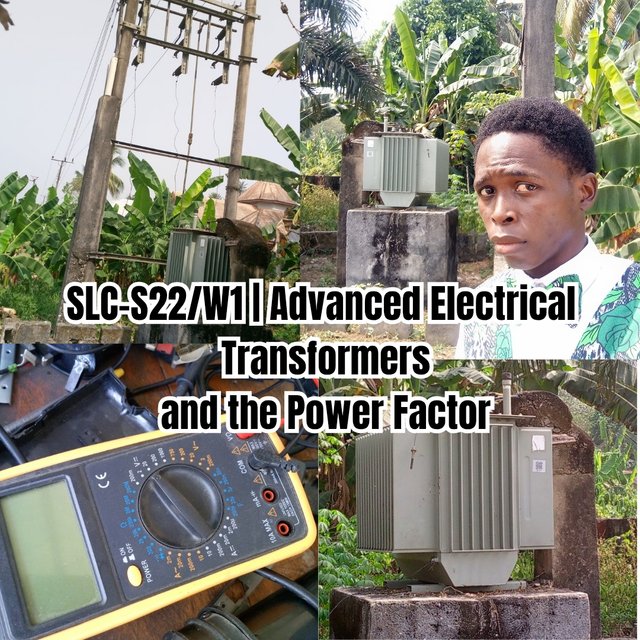 |
|---|
If you have ever heard of like poles, then you will know why a transformer's primary and secondary windings have a magnetic connection. In physics, I was taught that like poles repel each other because the poles are identical and cannot merge, but unlike poles attract in transformer connections. Remember, the windings are on the same core, and they are connected to different charges, which are positive and negative, and this is the reason for their magnetic connection when power is supplied. I love this course.
A
Name the two transformers and explain why |
|---|
From the diagram, the first transformer given is a step-up transformer, and from physics, I learnt that whenever the primary turns are fewer than the secondary turns, with this lesser number of primary turns, the voltage in the primary turns is lower than the secondary turns, and the transformer can step up voltage to the part that has 8 turns in the secondary turns.
The opposite is the case for step-down transformers, which is the image on the right. Here, we have the step-down, and from the diagram position, you can see that the left turn is higher than the right turn, meaning that voltage is stepped down as current passes through it.
What is the turn ratio of the two transformers? |
|---|
The same formula is used for the calculation of the turn ratio for both step-up and step-down transformers, and that is calculated this way.
Turn ratio for step-up transformer
a = Np/Ns
= 4/8
= 0.5
Turn ratio for step-down transformer
a = Np/Ns
= 8/4
= 2
This calculation has no unit.
B
Transformers Parts and their Functions |
|---|
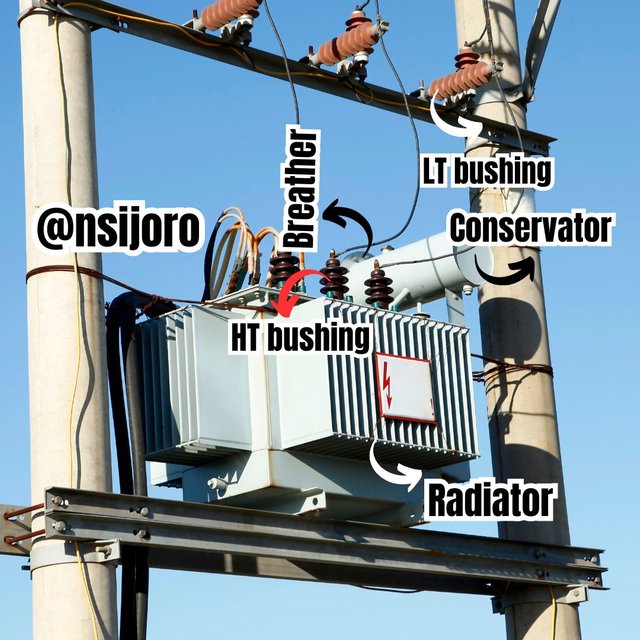
HT is known as a high-tension bushing that provides insulation between the transformer's high-voltage turns; it allows current to flow from the transformer to external circuits.
LT provides insulation on the low-voltage turn of a transformer; it protects turns from external electrical surges such as moisture.
Breather helps in circulating air in and out of the transformer, thereby regulating temperature; it contains silica gel, an anti-moist, and a desiccant that helps to absorb moisture and maintain a dry environment in the transformer.
Conservator tanks serve as a reserve where oil is conserved, while the transformer is running oil moves up here.
The temperature gauge is like a meter that displays the temperature of the transformer.
The Buchholz relay is an element or part of a transformer that detects abnormalities in the transformer; it monitors the gas and oil level in a transformer and also the pressure and temperature.
A radiator is used in cooling fluid, and it combines both the convection and radiation processes in cooling. In radiation, the radiator's surface emits heat to the surroundings.
C
The kind of Transformers used for my home's electricity |
|---|
 | 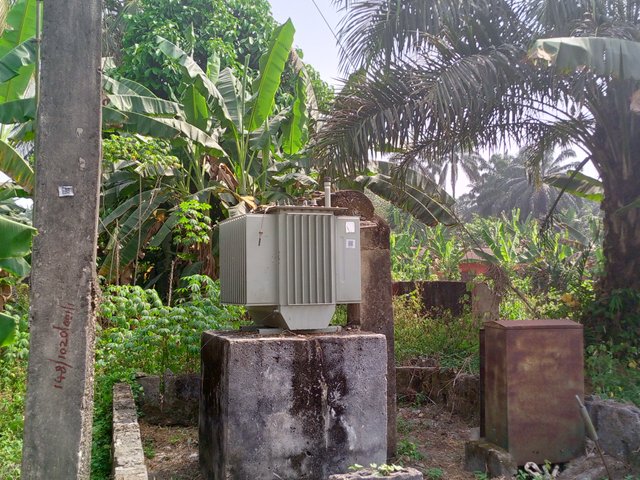 |
|---|
Distribution Transformer
The type of transformer I use in my home is a distribution transformer, which is mounted in different streets depending on the load exerted on the transformer; power-holding companies may mount up to 2, and a special wire is connected from these lines and passed from pole to pole to my house.
Step-up transformer
I also use the autotransformer, which is mostly stepped up to pull current just enough to power my appliances, like the freezer or TV, when there is an extremely low current.
D
Calculate how many KVA transformers will be required for a 5000KW load |
|---|
From my little research, I discovered that the power factor is not constant and varies depending on the load, but in the transformer case where energy loss is reduced, a power factor of 0.9 and above is used, but we will be using 0.9.
KVA = KW/PF
KVA = 5000/0.9
= 5,555.56 ~ 5556 KVA
E
Identification of Transformer's Point |
|---|
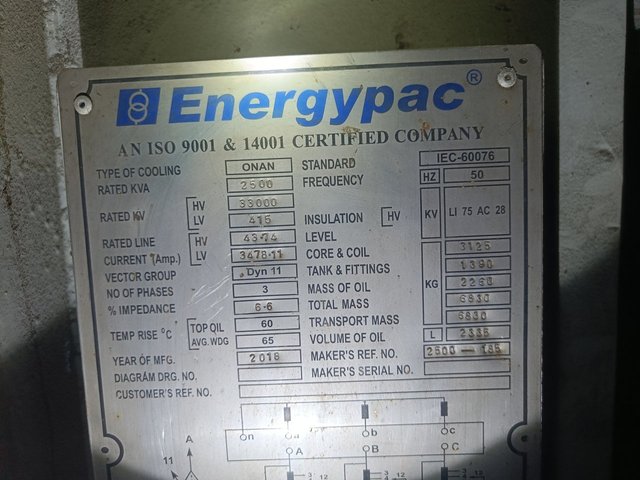
Transformer Name: This is a distribution transformer because they are designed to step down a high voltage (33,000) to a lower voltage for distribution to industrial and commercial use.
Transformer rating = 2500 kVA
Primary voltage = 33,000V
Secondary voltage = 415V
Current (HV) = 4374
Current (HV) = 3478.11
F
Find the currents in the high voltage(HV) and low voltage (LV) sides of the 33/0.415kV, 2.5MVA transformer
GThe power factor has many definitions mathematically. It is the cosine product of the voltage and the current; it has a standard range of 0.90-1.00, if the real power is directly proportional to apparent power, and the constant is the power factor. In Nigeria, the power factor is calculated based on the route of distribution, but in general, it ranges from 0.75 to 0.95. H
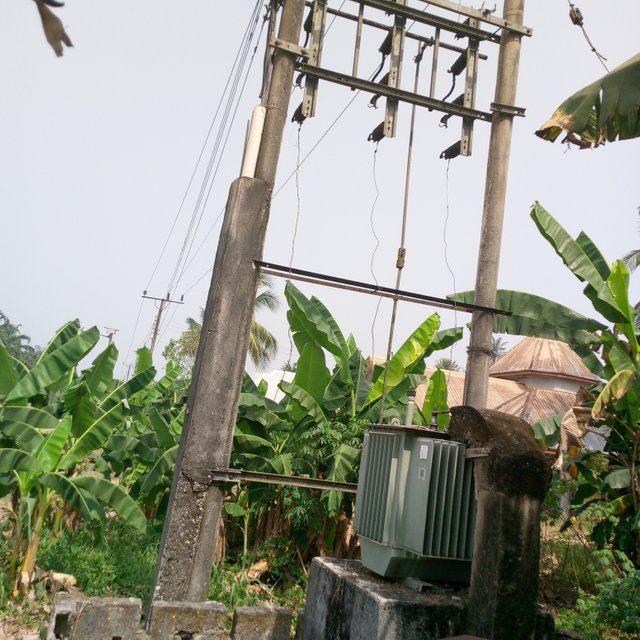 vandalised transformer Determine whether true or falseAccording to the question given below question H, I will answer whether it is true or false.
I would love to see entries from @max-pro @adriancabrera @artist1111 and @mdsahin111 soon |
|---|
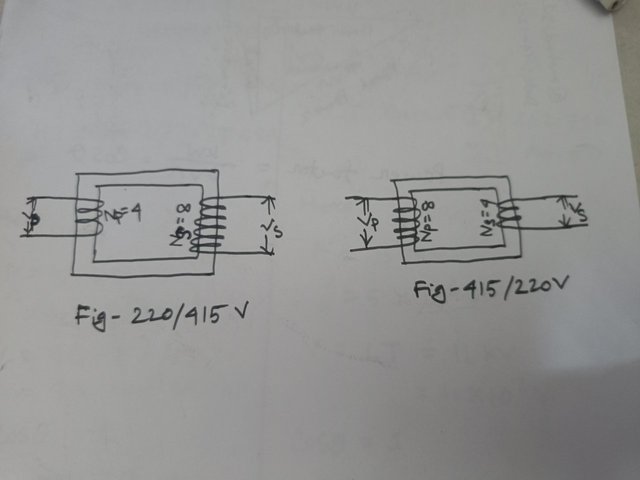
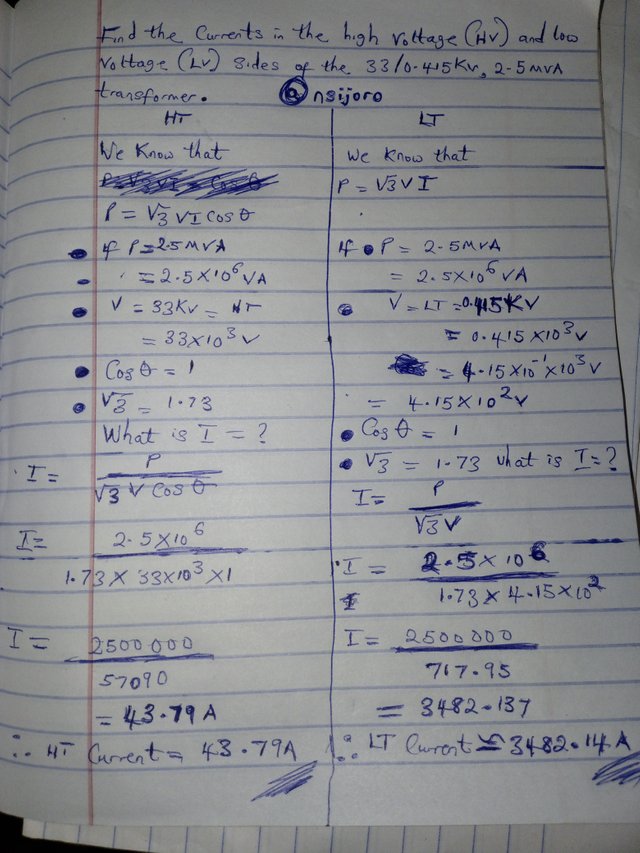
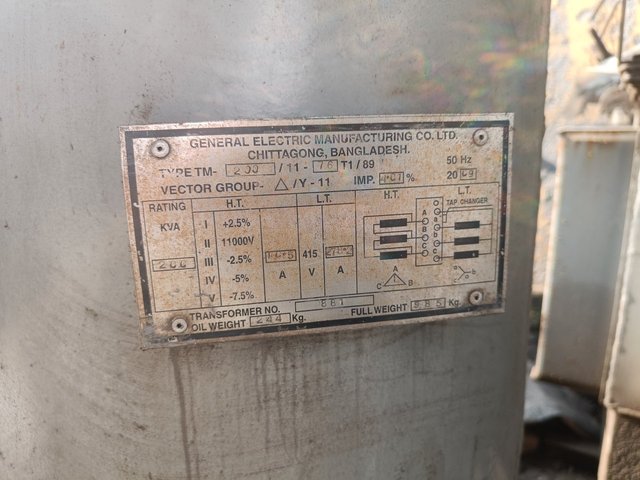
Upvoted! Thank you for supporting witness @jswit.